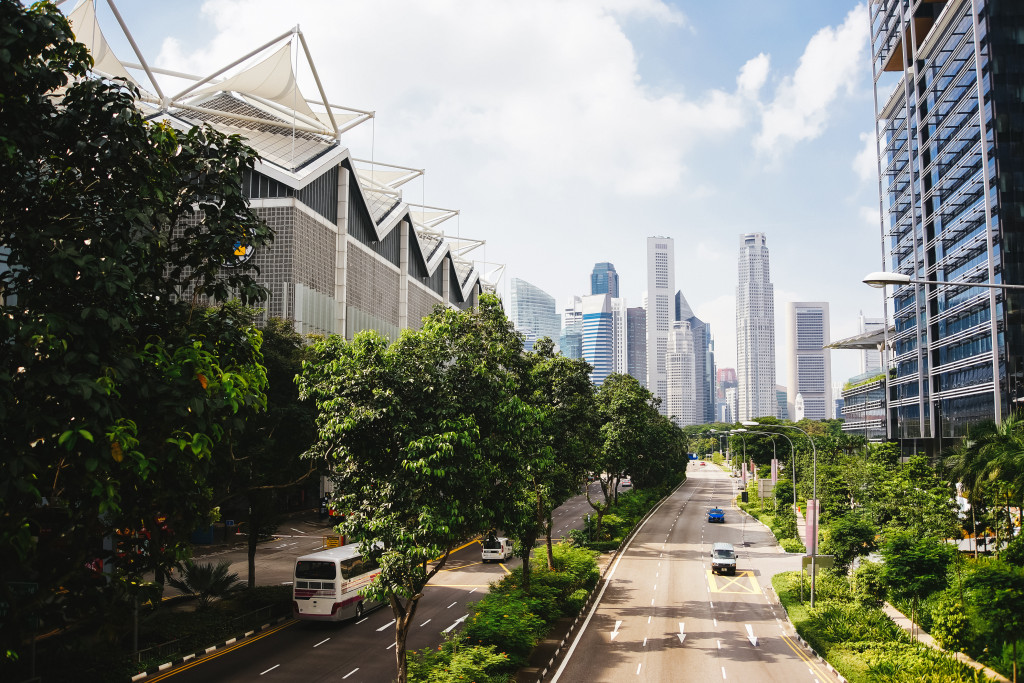Most people think of their city as a concrete jungle: polluted, crowded, and noisy. But it doesn’t have to be that way. Cities can work together to maintain a clean environment.
A clean environment is vital for many reasons. It helps protect our health, keeps our air and water clean, and makes our cities more attractive places to live.
When the environment is polluted, it can cause serious health problems. Polluted air can cause respiratory issues, and dirty water can cause diseases. It can also damage our ecosystems, making it difficult for plants and animals to survive.
But by working together, cities can make sure that their environment stays clean and healthy.

Develop a city-wide recycling program
City-wide recycling programs are an excellent way for cities to work together to maintain a clean environment. By recycling materials instead of throwing them away, cities can reduce the amount of pollution created.
Recycling programs also help conserve natural resources, which are vital for our planet. And they can create jobs in the recycling industry, which is a growing sector.
Establish laws and regulations to prevent pollution
One of the best ways for cities to work together to maintain a clean environment is by establishing rules and regulations to prevent pollution. These laws can help keep factories and businesses from polluting the air and water, and they can also help reduce the amount of waste produced.
Laws and regulations can also help improve citizens’ quality of life. For example, they can be used to improve public transportation or increase the use of renewable energy sources.
Clean up polluted areas
When a city becomes polluted, it can be challenging to clean up. The pollution can come from many sources, including factories, cars, and households.
Cleaning up polluted areas can be difficult, but it is vital for people’s health and the environment.
One way to clean up polluted areas is by using municipal street sweepers. These machines can help clean up the streets and sidewalks, and they can also help reduce the amount of pollution released into the air.
Promote green building practices
Cities can work together to promote green building practices. By using environmentally friendly materials, cities can reduce the amount of pollution created.
Cities can also work together to promote the use of renewable energy sources. By using energy from sources like the sun and wind, cities can reduce their dependence on fossil fuels.
Renewable energy sources are also crucial for our planet, and they can help reduce the amount of pollution that is released into the air.
Implement public transportation systems
Public transportation is an essential part of a city’s infrastructure. It helps reduce traffic congestion and pollution, and it also makes it easier for people to get around.
Many cities have public transportation systems, including buses, trains, and trolleys. These systems can help reduce the amount of pollution created by cars and buses.
Public transportation systems can also help to reduce the amount of traffic congestion. When people don’t have to rely on cars, they can use public transportation instead. This can help reduce the amount of pollution created by cars and trucks.
Support renewable energy sources
Many cities are now supporting renewable energy sources, such as solar and wind power. These energy sources are environmentally friendly, and they can help reduce the amount of pollution released into the air.
Cities can work together to promote the use of renewable energy sources and implement policies that encourage their use.
By using renewable energy sources, cities can help protect our planet and improve the quality of life for their citizens.
Plant trees and gardens in urban areas
Cities can work together to maintain a clean environment by planting trees and gardens in urban areas. Trees and gardens can help improve the air quality in a town, and they can also help reduce the amount of noise pollution.
Gardens can also help to reduce the amount of rainwater runoff. When it rains, the rainwater can wash pollutants and trash into the storm drains. Gardens can help to filter this water before it enters the storm drains.
Trees and gardens can also make a city more beautiful. They can provide shade in the summertime and add color to the landscape.
Conclusion
In conclusion, cities can work together to maintain a clean environment. By using municipal street sweepers, promoting green building practices, implementing public transportation systems, and supporting renewable energy sources, cities can reduce the amount of pollution created.
Cities can also plant trees and gardens in urban areas to improve air quality and reduce the amount of runoff. By working together, cities can create a cleaner and healthier environment for their citizens.


